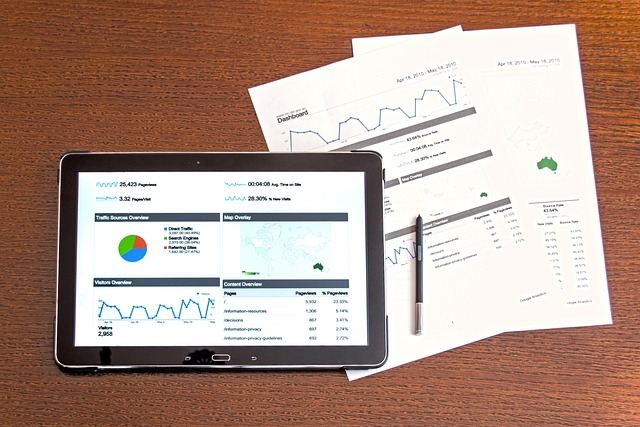Cash flow management is a crucial aspect of running a successful business, as it ensures that there are sufficient funds to meet all financial obligations and keep the business running smoothly. This guide provides an overview of cash flow management and helps you understand how to effectively manage your cash flow.
Understanding Cash Flow Management
What is Cash Flow Management?
Cash flow management refers to the process of monitoring and controlling the flow of cash in and out of a business. The goal of cash flow management is to ensure that a business has enough cash to meet its financial obligations and operate efficiently.
The Importance of Cash Flow Management
Having control over your cash flow is crucial for the success of your business. A lack of cash flow can result in missed payments, the inability to pay bills, and the inability to invest in growth opportunities. On the other hand, effective cash flow management can lead to improved financial stability and the ability to plan for the future.
Understanding Your Cash Flow
Your cash flow is the amount of money coming into your business versus the amount going out. It is important to understand your cash flow because it provides insight into your business’s financial health and helps you make informed decisions about how to manage your finances.
Assessing Your Cash Flow
Analyzing Your Income and Expenses
To assess your cash flow, it is important to understand your income and expenses. This means tracking your sales, identifying your fixed and variable expenses, and understanding how these factors impact your cash flow.
Understanding Your Financial Statements
Financial statements, such as your balance sheet and income statement, provide valuable information about your business’s financial health and can help you assess your cash flow. These statements show your assets, liabilities, and net worth, which can help you understand your overall financial position and identify areas where you may need to improve your cash flow.
Tracking Your Cash Flow
Tracking your cash flow is essential for effective cash flow management. This involves regularly monitoring your income and expenses and making adjustments as needed to ensure that you have enough cash on hand to meet your financial obligations. You can track your cash flow by using financial software, creating a budget, or working with a financial advisor.
Improving Your Cash Flow
One of the primary goals of cash flow management is to improve the overall flow of money in and out of your accounts. There are several strategies for improving your cash flow, including controlling your expenses, managing your debt, and building an emergency fund.
Controlling Your Expenses
Reducing your expenses is one of the quickest and most effective ways to improve your cash flow. There are two primary methods for reducing expenses: cutting unnecessary costs and increasing your revenue.
Reducing Unnecessary Costs
To reduce unnecessary costs, it is important to take a closer look at your spending habits. Consider where you are spending your money and identify any expenses that are not necessary. This may include subscriptions, memberships, and impulse purchases. Once you have identified these expenses, you can make changes to reduce or eliminate them.
Increasing Your Revenue
Another way to improve your cash flow is by increasing your revenue. This may involve taking on a side job, selling unused items, or negotiating a raise at your current job. You can also consider starting a business or investing in real estate to increase your income streams.
Managing Your Debt
Debt can be a major drain on your cash flow, so it is important to manage it effectively. There are two strategies for managing debt: paying it off faster and refinancing it.
Paying Off Debt Faster
One way to manage debt is by paying it off faster. This can be done by creating a budget that includes extra payments towards your debts each month. You can also consider consolidating your debts or using a debt management plan to help you get out of debt faster.
Refinancing Your Debt
Refinancing your debt is another option for managing debt. This involves taking out a new loan with a lower interest rate to pay off existing debts. Refinancing can lower your monthly payments, freeing up cash flow for other expenses.
Building an Emergency Fund
An emergency fund is a critical part of a healthy financial plan. This fund provides a cushion for unexpected expenses, such as medical bills, car repairs, or job loss. Building an emergency fund is easy, simply set aside a portion of each paycheck into a savings account and avoid dipping into it unless it is a true emergency.
Cash Flow Planning and Budgeting: The Key to Financial Success
Cash flow management is essential for the financial stability and growth of individuals and businesses alike. Whether you are looking to save money, pay off debt, or invest in the future, effective cash flow planning and budgeting is a critical component of achieving your financial goals. In this section, we will discuss the steps you can take to establish and maintain a successful cash flow budget.
Setting Financial Goals
The first step in creating a cash flow budget is to set clear and achievable financial goals. This can include paying off debt, saving for a down payment on a home, or building an emergency fund. When setting your goals, it is important to be realistic and to consider your current financial situation, including your income and expenses.
Creating a Cash Flow Budget
Once you have set your financial goals, the next step is to create a cash flow budget. This involves estimating your monthly income and expenses and determining the difference between the two. It is important to be as accurate as possible when estimating your expenses, as this will ensure that your budget is realistic and achievable.
Estimating Your Income and Expenses
To create a cash flow budget, you will need to estimate your monthly income and expenses. This includes your fixed expenses, such as rent or mortgage payments, and your variable expenses, such as groceries and entertainment. Be sure to include all of your expenses, including those that may not occur every month, such as car repairs or insurance payments.
Adjusting Your Budget as Needed
Once you have created your cash flow budget, it is important to regularly review and adjust it as needed. This may involve reducing expenses or increasing income, depending on your financial situation. It is also important to factor in unexpected expenses and to adjust your budget accordingly.
Staying on Track with Your Budget
Finally, it is essential to stay committed to your cash flow budget and to make it a priority in your financial planning. This can involve tracking your spending and making changes as needed, such as reducing unnecessary expenses or finding ways to increase your income. With dedication and commitment, you can effectively manage your cash flow and achieve your financial goals.
Strategies for Positive Cash Flow
When it comes to managing your business finances, having a positive cash flow is crucial. It is the lifeblood of your organization and enables you to pay your bills, invest in growth opportunities, and build a safety net for unexpected expenses. Here are four strategies for ensuring positive cash flow in your business.
Invoicing and Receiving Payments Quickly
One of the most important aspects of positive cash flow is getting paid on time. This means invoicing your clients promptly and following up with them to ensure payment is received in a timely manner. Consider setting up a payment plan or using a payment processor that allows for automatic payments to make the process smoother and faster. Additionally, you can offer incentives, such as discounts, for early payment to encourage prompt payment from your clients.
Utilizing a Cash Flow Projection Tool
Cash flow projection tools help you estimate future cash flow and identify areas where you can improve your finances. By having an accurate view of your future cash flow, you can better plan for expenses and ensure that you have the funds necessary to maintain positive cash flow. Many online tools and software are available to assist you with this process, so it’s worth investing in one that suits your needs.
Maintaining a Healthy Cash Reserve
Having a healthy cash reserve is essential to ensuring positive cash flow. This reserve can be used to cover unexpected expenses, maintain cash flow during slow periods, and provide a safety net in case of emergencies. Consider setting aside a portion of your profits each month to build up your cash reserve. It’s important to have enough saved up to cover several months’ worth of expenses, so you’re prepared for any unexpected challenges that may arise.
Diversifying Your Revenue Streams
Diversifying your revenue streams can help ensure a steady flow of income and reduce the risk of relying on just one source of revenue. This can include offering new products or services, exploring new markets, or seeking out partnerships and collaborations. Having multiple streams of income can provide a safety net in case one stream decreases, helping to maintain positive cash flow in your business.
Dealing with Cash Flow Issues
Dealing with cash flow issues can be a major challenge for any business, large or small. It’s important to understand the root cause of the issue and take the appropriate steps to address it before it becomes a bigger problem.
Identifying the Root Cause of Cash Flow Issues
The first step in addressing cash flow issues is to understand what is causing the problem. Some common causes of cash flow issues include slow payments from customers, unexpected expenses, and a lack of cash reserves. By identifying the root cause, you can determine the best course of action to resolve the issue.
Negotiating with Creditors and Suppliers
If your cash flow issue is due to outstanding payments from customers, it’s important to work with them to find a solution. This may include negotiating longer payment terms or offering discounts for prompt payment. If you owe money to creditors or suppliers, you may also be able to negotiate more favorable payment terms to help improve your cash flow.
Seeking Financing Options
If the issue cannot be resolved through negotiation, seeking financing options may be necessary. This may include securing a loan, seeking investment, or negotiating a line of credit with a bank. It’s important to compare the different financing options available and determine which one is best suited for your business needs.
Implementing Cost-Cutting Measures
Finally, implementing cost-cutting measures can help improve your cash flow. This may include reducing discretionary spending, renegotiating contracts with suppliers, or finding ways to streamline your business operations. By reducing costs, you can free up more cash to put towards paying down debts or building up your cash reserves.
Best Practices for Cash Flow Management
Staying Organized and Detailed
Cash flow management requires a great deal of attention to detail and organization. Keeping accurate and up-to-date records of all financial transactions, including incoming and outgoing funds, is essential. This information can help you make informed decisions about your cash flow and identify areas that may need improvement. Consider using a software program or spreadsheet to track your cash flow and make it easier to stay organized.
Regularly Reviewing Your Cash Flow
It’s important to regularly review your cash flow to ensure that you have an accurate picture of your financial situation. This should be done at least monthly, if not more frequently. Use the information gathered from your cash flow tracking to identify trends, understand your spending habits, and make any necessary adjustments. With regular monitoring, you can catch potential cash flow problems before they become serious issues.
Seeking Professional Advice
Seeking professional advice from an accountant, financial advisor, or business coach can be extremely beneficial when it comes to managing your cash flow. They can help you identify areas of your business that may be contributing to cash flow problems and offer suggestions for improvement. This can be especially helpful if you’re unsure of where to start or if you’re facing a difficult financial situation.
Staying Flexible and Adaptable
The business world is constantly changing, and it’s important to stay flexible and adaptable when it comes to your cash flow. This means being open to new ideas, finding new revenue streams, and adjusting your spending as needed. By being flexible and adaptable, you’ll be better equipped to weather financial storms and take advantage of new opportunities as they arise.
The Benefits of Effective Cash Flow Management
Effective cash flow management has numerous benefits for individuals and businesses alike. It allows you to have a clear understanding of your financial situation, and make informed decisions that can improve your financial stability. With better cash flow management, you can ensure that you have the funds available when you need them, and that you’re not caught off guard by unexpected expenses.
Taking Control of Your Cash Flow
Taking control of your cash flow starts with understanding your financial situation. This means analyzing your income and expenses, understanding your financial statements, and tracking your cash flow. With this information, you can assess your cash flow, identify areas where you need to improve, and put strategies in place to boost your financial stability.
Investing in Your Financial Future
Investing in your financial future requires a long-term perspective. By consistently managing your cash flow, you can ensure that you have the funds available to meet your financial goals, whether it’s buying a home, starting a business, or building an emergency fund.
Remembering the Importance of Consistency and Perseverance
Cash flow management is not a one-time event. It requires consistent effort and perseverance. You need to regularly review your financial situation, adjust your strategies as needed, and remain committed to your financial goals. With persistence and a long-term perspective, you can build a strong financial foundation and secure your financial future.













